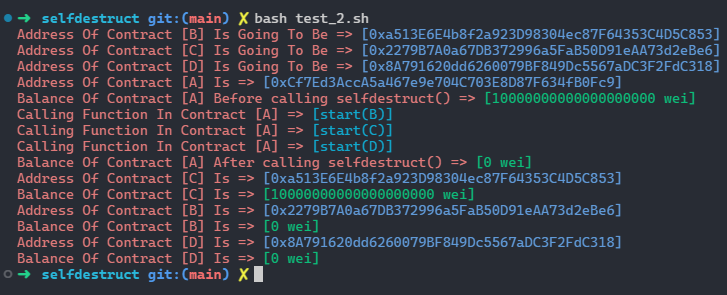-
(Q) we have contract
Awhich the balance of contract is10 etherand there is a function in it which callselfdestruct()and we pass an payable address to the function. but, there isno deployed contracton that address. what will be happen to theethers? -
-
# Put your data in .env.example File # Then rename it to .env bash test_1.sh
-
-
(Q) if we call
slefdestruct()function several times and pass different address each time and no deployed contract be on that addreses, what will happen to theethers? -
-
# Put your data in .env.example File # Then rename it to .env bash test_2.sh
-


